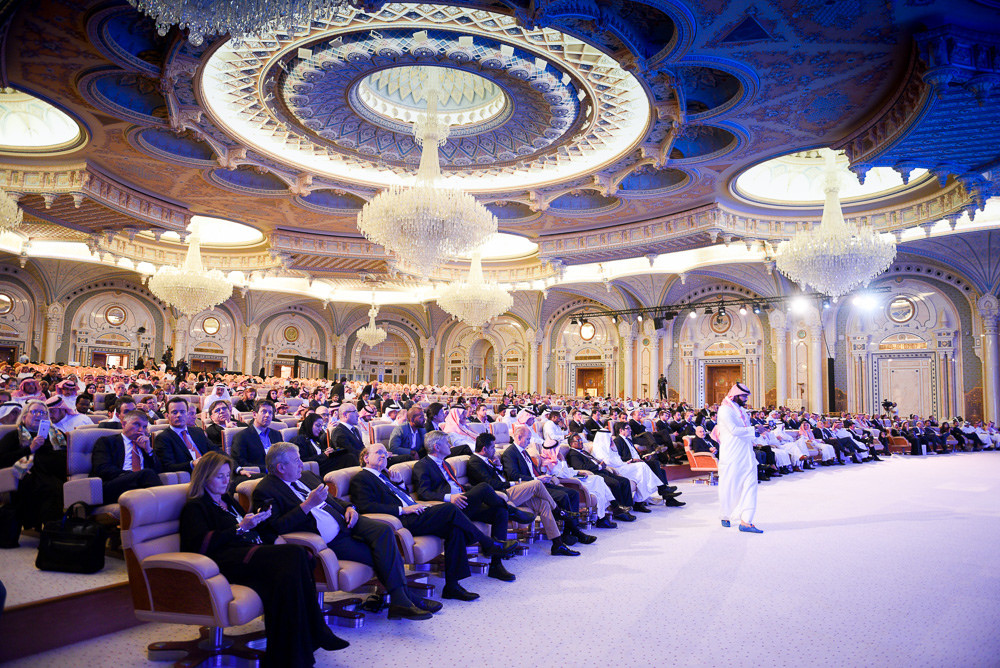ASDA'A BCW 06 Feb 2019 // 9:51PM GMT

By Sunil John
President – Middle East, ASDA’A BCW
The Future Investment Initiative (FII), popularly known as the Davos in the Desert, held from October 23 - 25, last year at the infamous Ritz Carlton in Riyadh, was probably the most important event on the regional business calendar. The air was charged with a growing boycott of the conference - and even doing business with the Kingdom - by major global corporations and multilateral institutions. Charges were being made on the links between the Saudi establishment and the murder of Saudi journalist Jamal Khashoggi inside the KSA consulate in Istanbul earlier that month.
Most CEOs of global businesses either chose to make very careful statements about backing out of the conference or just maintained a stoic diplomatic silence. Many local and regional business leaders chose not to speak at all.
But one CEO stood out, making a live statement to CNN. It was Amin Nasser, CEO of Saudi Aramco, who expressed his regret on the killing and then went on to say that the Kingdom recognised the issue and was looking into the case. He moved on to say that most of his company’s international partners were attending the conference and came across as a business leader who was not afraid of stating his point of view. It was a quantum leap from the low profile Saudi Aramco of the past, with spokespeople who rarely commented on anything unrelated to their business.
That interview in many ways shattered what most CEOs in the region suffer from - Tall Poppy Syndrome – an age-old practice of the private sector staying below the radar and avoiding commenting on issues that did not concern their business at all costs lest their heads get chopped off (metaphorically) by the powers that be. To a great extent, the reason for the syndrome growing and festering in the region is the advice that most PR consultants give to their clients – don’t stray away from your structured messaging and comment only on the business that you are involved in. Political and policy matters are to be avoided at all costs. It seemed like the right thing to do, but the world has changed.
Today CEOs are increasingly being asked to speak about what they think and feel about issues concerning racism, gender gaps, the #metoo movement, income disparities, education, and healthcare, as well as government policies concerning immigration, protectionism, trade tariffs, foreign affairs, human rights and what have you. Earlier it was enough for the CEO to communicate to employees, customers, investors, analysts and regulators about their company’s performance, outlook and possibly some additional fluffy stuff on corporate social responsibility.
Today it’s a whole new ball game. It’s about connecting with the community and articulating your corporate purpose. It’s about humanising the CEO and making him or her accessible and relatable to a larger group of stakeholders.
While these are real demands on the CEO of today, it does not mean that you throw all caution to the wind and speak your mind on all kinds of issues that are unimportant and possibly unrelated to the business. Today, the risk of a backlash is perhaps even greater – the internet and 24-hour news cycles offer us meltdowns in real-time, with updates by the minute.
There isn’t a Tesla shareholder alive who doesn’t wish Elon Musk would delete his Twitter account; Twitter investors themselves can be forgiven for wishing the platform’s founder and CEO, Jack Dorsey, had stayed silent after his recent 10-day ‘silent’ retreat in Myanmar.
But, times are changing. 2018 was also the year that Nike took a stand (or rather took a knee) to support Colin Kaepernick, with a campaign that urged us to “Believe in something. Even if it costs you everything.” Taking a position paid off for the brand – with sales rising 31 per cent in the immediate aftermath and, in the medium term, incomes up 10 per cent at the end of the second financial quarter. Building brand loyalty is not for the faint hearted.
In today’s ultra-political, hyper-polarised world, corporations aren’t expected to just sit on the sidelines. They have to be involved. They have to have an opinion. Today’s CEO isn’t just an organisation’s main decision maker, they’re the public face representing a company position on everything from social issues to public policy.
With that mind, I’d like to offer three predictions for 2019
-
The emergence of the socially conscious CEO: Today’s CEOs are expected to embody the values of the companies they helm. Obviously, that means not being afraid to stand up for the values your company does represent, even when you’re not specifically asked to. In other words, it’s time to stand for something.
-
Authenticity will be the new measure of successful communications: Now is the time to emphasise the truth, broadcast the facts and present an image of ‘unimpeachable’ honesty. That will make the CEO more human and authentic – the new measure of effective communications.
-
The CEO will own their channels: Most CEOs will depend less on traditional media channels such as print and television and find ways to reach out to their audiences through their own channels, using social media platforms like LinkedIn, Twitter and YouTube as well as their own blogs and podcasts.
In 2019, it’s time to use the C-suite’s power to communicate constructively and take a position on something that goes beyond the bottom line. As the world gets noisier, consumers, potential employees, and business partners are increasingly looking to align with companies and brands that reflect their own values. The age of fence-sitting is well and truly over. It’s time to speak up.


































.jpg)












